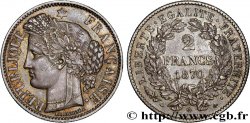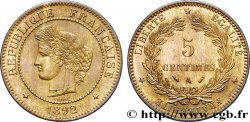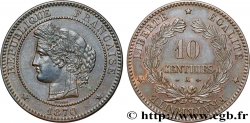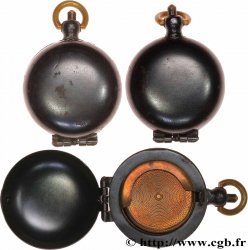fme_370753 - III REPUBLIC Médaille du concours musical
无库存.
所有在网站上销售的产品 (2017)
价格 : 100.00 €
所有在网站上销售的产品 (2017)
价格 : 100.00 €
种类 Médaille du concours musical
日期: 1906
铸币厂名称/城市 France
材质 silver
直径 30 mm
模子方针 12 h.
硬币制模工 MOUCHON Louis-Eugène (1843-1914)
重量 12 g.
侧面 lisse + losange ARGENT
关于品相的说明
Jolie médaille avec sa bélière. Patine grise
正面
正面的文字 ANÉPIGRAPHE.
正面的说明书 Jeune homme nu assis sur un rocher jouant de la lyre ; un tigre à ses pied et un paysage lacustre en arrière plan.
背面
背面的文字 CONCOURS MUSICAL INTERNATIONAL // ORGANISÉ / PAR / LE JOURNAL / 1906.
背面的说明书 Légende circulaire et en quatre lignes horizontales dans une couronne de chêne et de lauriers.
评论
Signature à peine lisible en bord de flan au droit.
Louis-Eugène Mouchon, né à Paris le 30 août 1843 et mort à Montrouge le 3 mars 1914, est un graveur de timbres-poste et graveur-médailleur français, notamment de la série d'usage courant de France qui porte son nom, le type Mouchon.
En 1903, d'après une plaque en relief fournie par Oscar Roty représentant la Semeuse de la monnaie, il grave la Semeuse.
On lui connaît également des gravures pour des billets de banque serbes (10 dinars 1887).
Ce concours pourrait être celui de Lourdes, avec la Lyre Montagnarde de Lourdes, organisé les 3 et 4 juin 1906, ou bien celui de Paris, organisé aux mêmes dates par “Le Journal”.
Le Journal était un quotidien français qui parut entre 1892 et 1944 dont le siège se trouvait au 100 rue de Richelieu dans le 2e arrondissement de Paris. Dans ses premières années (jusqu'en 1911), c'est un journal littéraire de tendance républicaine. C'est l'un des quatre plus grands quotidiens français d’avant-guerre, avec Le Petit Parisien, Le Matin, et Le Petit Journal. Son orientation nationaliste se renforce ensuite au fil des années, amenant à sa disparition avec la fin du régime de Vichy en 1944..
Louis-Eugène Mouchon, né à Paris le 30 août 1843 et mort à Montrouge le 3 mars 1914, est un graveur de timbres-poste et graveur-médailleur français, notamment de la série d'usage courant de France qui porte son nom, le type Mouchon.
En 1903, d'après une plaque en relief fournie par Oscar Roty représentant la Semeuse de la monnaie, il grave la Semeuse.
On lui connaît également des gravures pour des billets de banque serbes (10 dinars 1887).
Ce concours pourrait être celui de Lourdes, avec la Lyre Montagnarde de Lourdes, organisé les 3 et 4 juin 1906, ou bien celui de Paris, organisé aux mêmes dates par “Le Journal”.
Le Journal était un quotidien français qui parut entre 1892 et 1944 dont le siège se trouvait au 100 rue de Richelieu dans le 2e arrondissement de Paris. Dans ses premières années (jusqu'en 1911), c'est un journal littéraire de tendance républicaine. C'est l'un des quatre plus grands quotidiens français d’avant-guerre, avec Le Petit Parisien, Le Matin, et Le Petit Journal. Son orientation nationaliste se renforce ensuite au fil des années, amenant à sa disparition avec la fin du régime de Vichy en 1944..







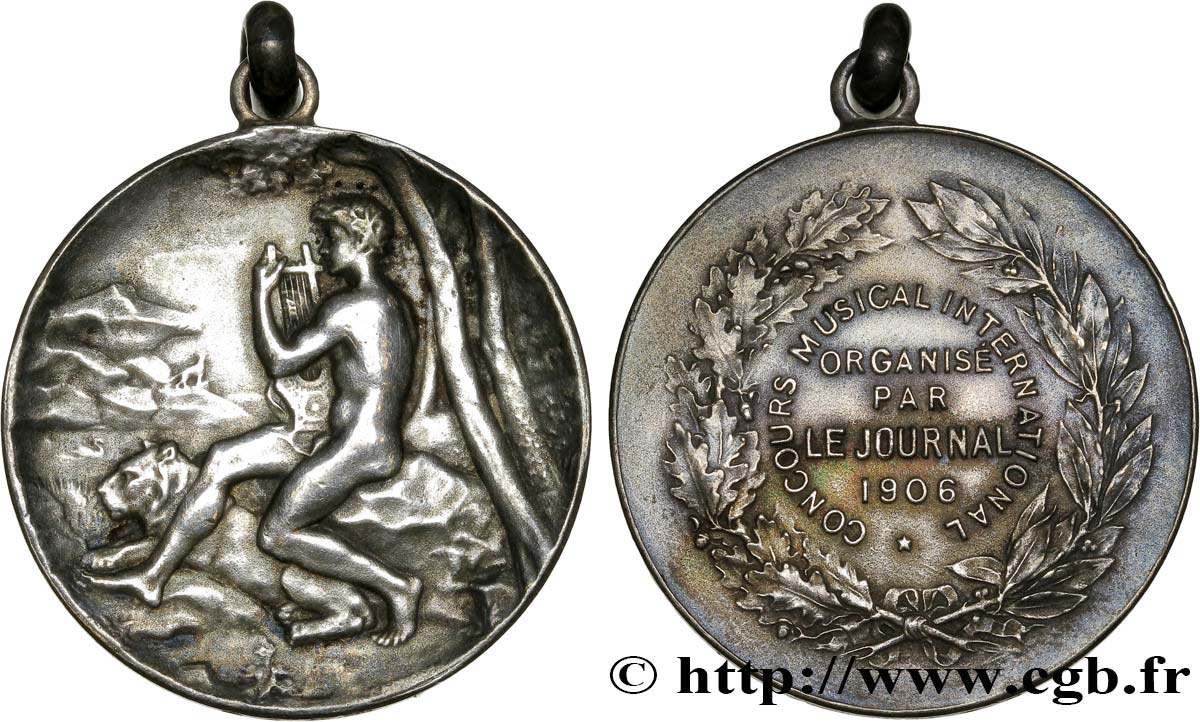
 对产品描述纠错
对产品描述纠错 打印
打印 分享我的选择
分享我的选择 提问
提问 Consign / sell
Consign / sell
 产品介绍
产品介绍